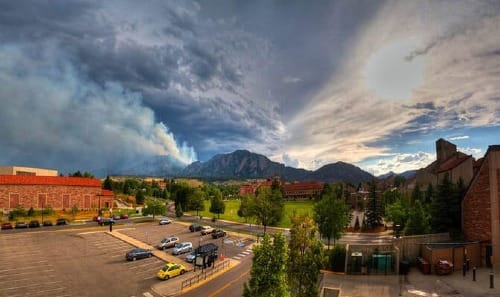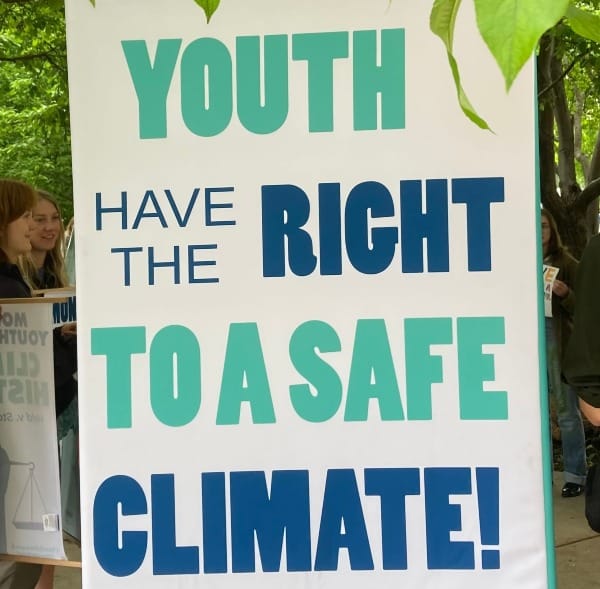Appeals Court Rules Colorado Climate Case Can Proceed In State Court

Colorado communities suing oil companies ExxonMobil and Suncor Energy over local climate impacts and associated costs can advance their case in Colorado state court, a federal appeals court has ruled. It is the latest setback for fossil fuel companies fighting similar climate liability lawsuits across the country.
The Tenth Circuit Court of Appeals ruled on Tuesday, July 7 to uphold a lower court order remanding or sending back to state court a lawsuit originally filed in April 2018 in Boulder County District Court, a Colorado state court. The city and county of Boulder and the county of San Miguel brought the lawsuit against ExxonMobil and Suncor alleging the unchecked sale and promotion of petroleum products in the state, despite the climate-related risks known to the industry, are exacerbating costly impacts like extreme heat, drought, wildfires and floods. The lawsuit seeks monetary damages and includes legal claims of nuisance, trespass, and violation of the Colorado Consumer Protection Act.
Like similar climate liability lawsuits filed by communities against major fossil fuel producers, the Colorado case was embroiled in a jurisdictional battle over whether the suits belong in state or federal court. The industry defendants want the cases in federal courts, where they have had success in getting several climate nuisance lawsuits dismissed. But the communities bringing the cases argue they are pleading strictly state law claims that are best handled by state courts. Four federal district judges, including in Colorado, have agreed with the communities that the cases belong in state courts. The defendants have appealed these decisions. Two federal appeals courts, the Fourth and Ninth Circuit Courts, have already rejected the appeals. Now the Tenth Circuit has followed their lead.
These appeals court rulings focus on a narrow statutory provision governing civil litigation procedure, specifically the appeal of remand orders. The courts have all agreed that remand orders are only reviewable on the grounds of federal officer removal – where a party in the litigation argues it is “acting under” the direction of federal officers. In these climate cases, the fossil fuel defendants claim their operations under federal permits and on federal lands satisfy the federal officer issue. But the Fourth, Ninth, and now the Tenth Circuit courts have disagreed.
“ExxonMobil failed to establish proper grounds for federal officer removal,” the Tenth Circuit concluded in its July 7 decision. The court reasoned that operating under federal permits and complying with federal regulations do not “create the ‘acting under’ relationship required to support a federal officer claim.”
Colorado’s case is already proceeding in state court despite the defendants’ attempts to remove the case to federal court. The Boulder County District Court held a hearing June 1 on motions to dismiss the case, and a decision on those motions is pending.
The environmental nonprofit EarthRights International, which is helping represent the Colorado communities in their case against Exxon and Suncor, said it looks forward to holding these companies accountable in state court.
“Exxon and Suncor are disproportionately responsible for the crisis that our clients now face,” EarthRights International General Counsel Marco Simons said in a statement. “Their reckless behavior has caused part of the damages that these communities are contending with and they should be held accountable for those damages. The Boulder County District Court held a hearing on this case on June 1, and we look forward to its pending decision on whether the case can proceed towards trial.”


